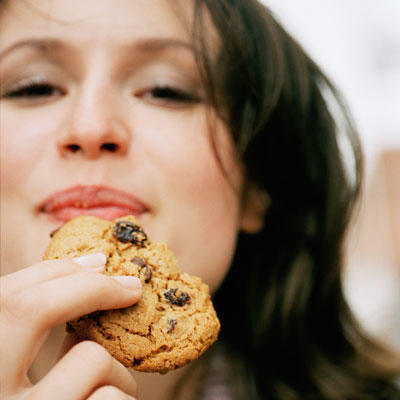Overcoming Emotional Eating and Weight Cycling (Yo-yo Diet)
Have you successfully lost weight in the past only to regain it again and again? A lot of people struggle with this dilemma most of their lives.
What is the cause of weight cycling?
Cutting drastically on your food intake for quick weight loss may seem like a great idea. Sooner or later, however, your body prepares itself for fewer calories coming in. The body will adjust to this lower calorie intake by decreasing the way it burns food for energy (metabolic rate) and conserving energy as well. The body then plateaus. It slows down or stops weight loss.
By this time most dieters struggle to maintain their diet program. And the weight slowly starts to creep up again. To make things worse, the decrease in metabolic rate will cause the body to live on less calorie intake. Every low-calorie dieting episode makes the body more efficient.
To make matters worse, the decreased metabolic rate induces the body to survive on diminished calories. Every low-calorie dieting episode makes the body more efficient. The severe calorie limitation also brings about a loss of muscle tone. Common signs of this are flabby upper arms and sagging buns.
How to break the yo-yo diet
Instead of hoping for a quick weight loss, take a more long term sustainable approach. Your goal should be for a modest weight loss. If you plan to decrease calorie intake, do it gradually. I recommend a decrease of 200-500 calories a day depending on how much you have to lose.
Do not think of your diet as a temporary measure, but a healthy living plan. Increase your level of physical activities by incorporating them in your daily life. For example, take the stairs or try something you enjoy such as dancing or hiking.
Don't skip breakfast and eat small meals throughout the day. You are less likely to overeat if you have small meals.
Emotional eating and overeating
All right, maybe your problem is not yo-yo dieting. It's possible that you are a habitual eater. Example, eating junk snacks while watching TV. Perhaps it is emotional. When you are stressed, you do not eat all day. Then when you get bored, you raid the refrigerator.
Overcoming emotional or habitual eating
If food is feeding an impulsive need in your life, then it's time to examine what is causing it.
Find substitutes to eating instead. For example, instead of celebrating your birthday with cake (childhood ritual), invite your friends to play miniature golf instead. Have healthy snacks such as an apple or carrot sticks on hand. You can grab them quickly when you are too stressed to find time to eat at work. Or you can just clear your head by taking a brisk walk during your lunch break.
Try to manage hunger by eating several small meals a day. Remember that if you go hungry, you will make poor choices or you will tend to overeat.
You can train your body to be fulfilled at 60% volume during meal times. Therefore, do not fill yourself 100%. You will not help starving children by eating everything on your plate. Don't feel bad about throwing out the food on your plate, think of where it will go if you eat it all.
If you know that you cannot stop at just one potato chip, get rid of it. As a matter of fact, just get rid of all the junk food that is detrimental to your goal.
It may sound corny, but try to do things to keep you focused on your goal. Put a sign on over your bed that says: "The difference between fat and fit is I." Stick a sign on your dashboard that says: "None of these foods taste as good as a size 8." (Add a picture of a cheeseburger and fries).
Finally, stay on track and never give up. Remember this quote: "One year from now, you'd wish you started today." Don't fall off the wagon even if you overate once (or twice).
-
Choosing the Best Weight Loss Supplement
Are you worrying about to lose weight? Weight loss supplements are the
-
Kyle Leon : Home Remedies For Weight Loss
Features of care - Area for hands quite suitable means to fight ce
-
Get A Lovely Figure with Effective Personal Trainer Program Available Online!
If you are fed up of trying continuous diets or gym sessions to reduc
-
Push a Button to Lose Weight
Trash Your TV! is pleased to announce the easiest we
-
The Items Youre Feeding On May Have Negative Effects On Your Health And Wellbeing
Many people mistakenly think that as long as theyre getting exercise
-
Beat obesity with Adipex diet pills
In todays era everybody loves to stay ahead. Whether its any product
- DON'T MISS
- The Six Week Body Make Over Weight Loss Program
- Healthy Quick Meals With Smoothie Drinks - Part 3/3
- Facial Exercises, Get Rid of Double Chin
- Bodyweight Reduction protein shakes for weight loss - the Delightful Solution to Bodyweight Loss
- Key Elements to Non-traditional Fitness Workouts
- What is the best diet plan?
- Every Other Day Diet Bittorrent
- Colon Cleansing Herbs - Seven Colon Cleansing Herbs You Can Test
- Why Do Celebrities Lose Weight So Fast? Their Shocking Fat Loss Secrets Finally Revealed
- Raspberry Keytone if you wish to Slim down




